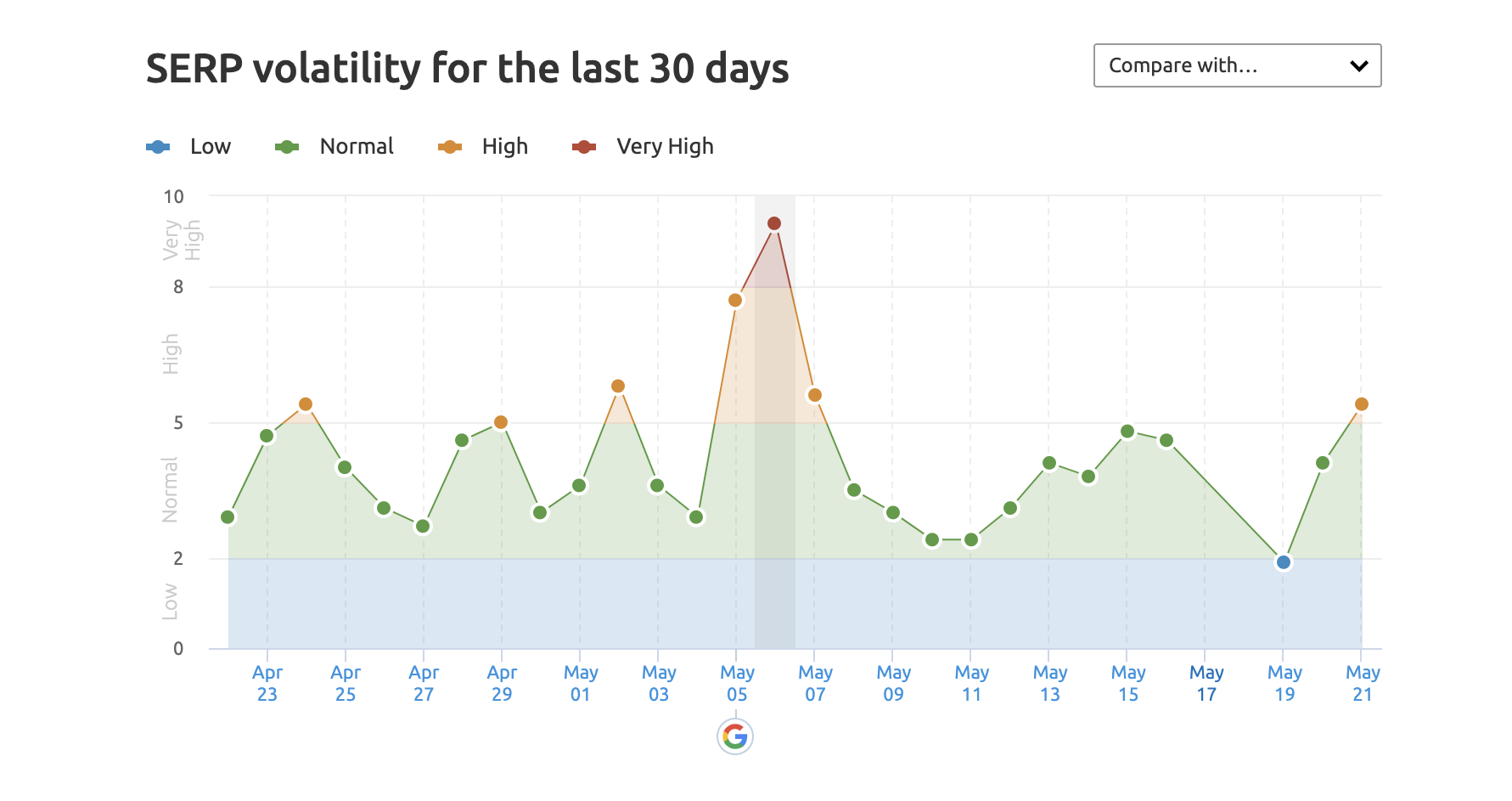It was on May 4th that Google announced that they were rolling out another broad core algorithm update, imaginatively titled 'May 2020 Core Update'. This broad update was applied worldwide, and finished rolling out on 18th May. As always, these updates are done to deliver on Google's goal of refining search quality by providing better search results to the users.
Google released their first core update of 2020 back in January, which had some pretty significant impacts on search rankings. And it looks like May's update has caused a shake up too.
Now that the latest rollout is complete, we wanted to take a look and see what the early impact of the update has been in the SEO sphere and what options you have if you've noticed a drop in rankings.
But before we begin, let's take a quick refresher...What is a Google Core Update?
Google continuously updates their search function. In 2018 they made over a staggering 3,200 changes to their search system alone! These changes are subtle and nuanced and as a result, most go unnoticed. However their core updates are more significant and tend to make headlines.
A Broad Core Update is an algorithm update that can impact the search and ranking position of the majority of websites, designed to achieve the goal of returning more relevant and useful search results to the searcher. These updates happen a few times a year, with Google often pre-warning users before rolling them out.
During the first few weeks after an update has been released, it is common to see volatility within the SERP's that lead to ranking changes for websites. Some sites will improve, some sites will drop their positions, while some be left unaffected.
When a website ranking drops following an update, many people make an immediate assumption that their website now has an SEO problem and Google is now looking at the site 'unfavourably'. But that's not the case - it just means Google is finding better results for the search query.
If another site has content that is perceived as more relevant than yours, their ranking could go up and as a result, your ranking drops. But that doesn't mean your site has been 'punished' by the update. Broadly speaking, ranking changes following an update could be attributed to three broad areas:
- Your competitors websites may be shifting position, impacting your ranking
- Your website may be shifting position, impacting your ranking
- The rollout of the update isn't completed yet, meaning only some search results have been affected
Google updates can take a couple of weeks to roll out fully, so rises and drops may be occurring because the rollout has only been partially applied (e.g it hasn't been applied to all regions).
it is generally agreed that websites that follow best practice when it comes to content will be less affected when updates roll around. If your site has been a drop in rankings following the latest update, don't worry! We'll provide you with a little refresher on good content practices a little bit later.
So what have Google changed with their latest update of the year?
As is common now before significant updates, Danny Sullivan, Google's Public Liaison of Search tweeted on May 4th that they were releasing the 'May 2020 Core Update'.
Google keeps its cards very close to its chest and true to form they haven't released details of what specific changes and alterations they have made to their search algorithms during this update.
It is always difficult to predict what specific changes Google may have made to their algorithms. However this update in particular has also coincided with a change in search behaviour due to the coronavirus, which makes it especially challenging to draw conclusions on what elements have been updated.
Early analysis has shown that the update has led to significant changes, with many users and SEO experts noting they have seen fluctuations with search rankings, both positive and negative. Looking at the data from the SEMrush Sensor confirms that the update caused significant SERP volatility.

SEMrush's biggest winners and losers update shows that sites within the news sector saw the biggest average gain in search traffic, followed by business and industrial, online communities, arts and entertainment, and health.
The arts & entertainment industry was one that experienced very high volatility in ranking changes, but this could potentially be explained more by changes to business operations and related news due to the lockdown.
Suffering from a post-update drop in rankings?
To combat a drop in rankings is to continually ensure you are offering searchers the best possible content that matches their query intent.
Remember, Google doesn't make changes to favour one website or another. As a content provider, you have the same goal as Google; deliver the highest standard of content possible to searchers queries. To do this, remember to:
- Produce high quality content that is based on facts and sound research (no fake news!)
- Make sure it serves a genuine purpose and hasn't been created for the sake of it
- Ensure that the content is well presented (think about all devices) and free from spelling or stylistic issues
- Include proper use of grammar and spelling
- Provide headlines, summaries and titles that clearly identify what your content is about
P.S. Don't forget to revisit your old posts
One other point to remember is that any updates will impact all of your content, not just what you are currently producing. People often forget to revisit old blog posts / articles, which leaves the information you are giving old / outdated.
Searchers want the latest information and search engines want to deliver it, which is why updating your old posts with up to date content will see an upturn in search engines ranking and deliver better engagement.
Going forward, it will be interesting to see the impact future Google updates have on the world of search. With the coronavirus pandemic continuing to create uncertainty, it is safe to assume search behaviour will be extremely difficult to predict. However, one thing you can control is the content you produce.
Has your site's ranking been affected by the latest Google update? Get in touch via Twitter and let's see if we can understand why.





